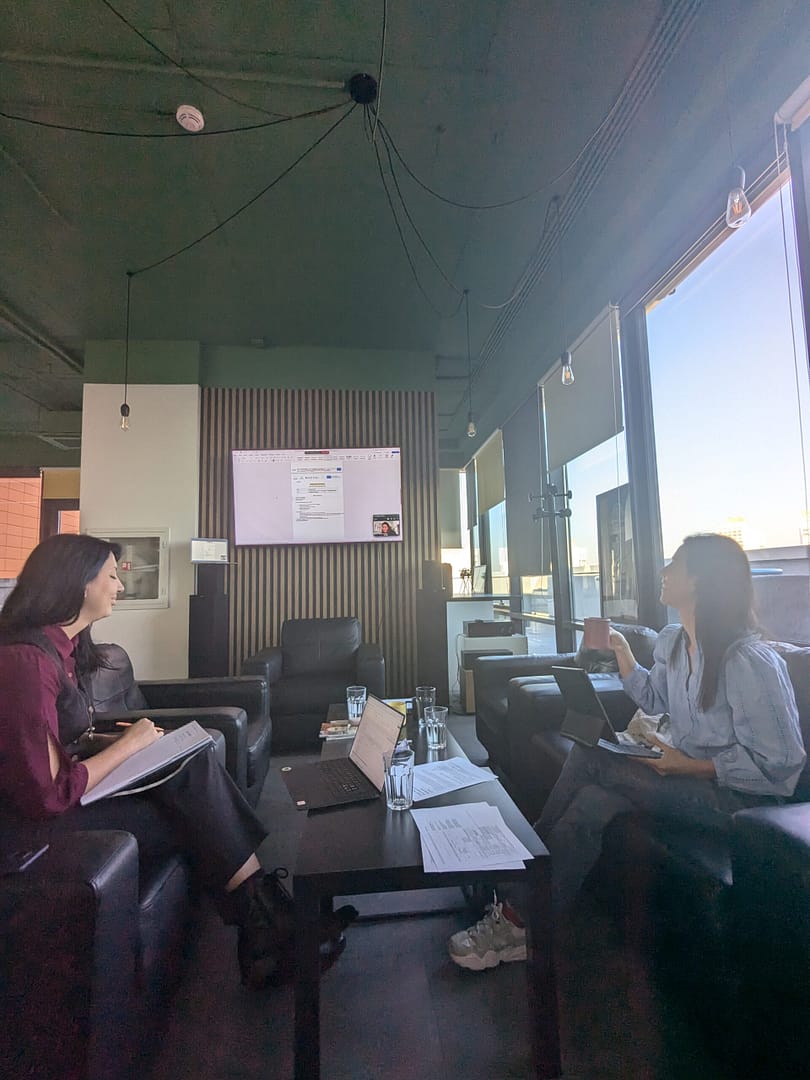Learning Outcomes:
Participants will practice mindful eating, reflecting on the sustainability of their food choices;
Participants will understand the environmental and social impacts of food production and consumption;
Participants will learn practical ways to reduce food waste and make more sustainable food choices in their daily lives;
Duration:
60 minutes (including meal time and discussion)
Materials needed:
In-person: Food for the meal (preferably locally sourced, organic, or sustainably produced), utensils, plates, napkins, and composting bins (if applicable).
Online: Participants will prepare their own meals with mindful eating instructions provided beforehand.
Preparation
In-person
Choose sustainable food options: ensure that the meal provided (or the ingredients for a potluck) is locally sourced, organic, or seasonal. If catering, work with vendors who prioritize sustainable practices
Set up the space: create a calm and comfortable dining space. Consider reducing distractions (e.g., no phones, quiet music, or none at all) to encourage focus on the food and discussion.
Provide composting bins: ensure there are proper waste disposal methods, including composting for food waste.
Online:
Pre-session instructions: provide participants with guidelines on how to prepare a sustainable meal at home. This could include tips on choosing local produce, reducing packaging waste, and avoiding processed foods.
Technology check: ensure participants have access to a stable internet connection for video discussions.
Description
This activity focuses on the practice of mindful eating, emphasizing the environmental, social, and ethical impacts of food choices. Participants will enjoy a shared meal (or individual meals in the case of online settings) while reflecting on where their food comes from, how it was produced, and the sustainability of their consumption habits. The activity includes a guided discussion on reducing food waste and making sustainable dietary choices.
Step-by-Step Instructions:
- Introduction (5 minutes):
- Introduce the concept of mindful eating and its connection to sustainability. Explain that participants will reflect on the origins of their food, the resources used to produce it, and its environmental impact.
- Share the goals of the activity: to develop greater awareness around food consumption, reduce waste, and explore sustainable alternatives.
- Mindful Eating Exercise (20 minutes):
- Instruct participants to begin eating slowly and mindfully, paying attention to each bite. Encourage them to focus on the texture, taste, and appearance of the food.
- Ask participants to reflect silently on where the food came from: “How far did this food travel? What resources were used to produce it? Who was involved in its creation (farmers, processors, etc.)?”
- Prompt them to think about the environmental and social impacts of the food: “Is this food locally sourced? Organic? How does this choice affect the environment and society?”
- Discussion on Food Sustainability and Waste Reduction (30 minutes):
- After the meal, open the floor for discussion. Use the following questions to guide the conversation:
- “What did you notice about your food while eating mindfully?”
- “How sustainable do you think the meal was, and why?”
- “What are some small changes you can make in your daily life to reduce food waste?”
- “What practical ways can we reduce food waste both at home and in group settings like this?”
- Discuss the importance of composting and reducing packaging waste, as well as the impact of choosing local and seasonal foods. Encourage participants to share their own strategies for making more sustainable food choices.
- After the meal, open the floor for discussion. Use the following questions to guide the conversation:
- Closing Reflection (5 minutes):
- Conclude by asking participants to commit to one specific action they will take to reduce food waste or improve the sustainability of their food choices.
- Encourage participants to reflect on how mindfulness during meals can influence their broader sustainability practices.
Debriefing
During the discussion, ask participants to reflect on what they learned about the sustainability of their food choices and waste management.
Encourage them to share one actionable step they can take in their daily lives, whether it’s composting, reducing food waste, or buying more local and organic products.
Optionally, participants can journal about their mindful eating experience and the connection between their food choices and sustainability.
Tips
In-person: Ensure that the meal choices are diverse and cater to various dietary restrictions while maintaining sustainability. For example, emphasize plant-based options, as these generally have a lower environmental footprint.
Online: Encourage participants to prepare simple, sustainable meals at home. If possible, provide them with resources on sustainable meal planning.
Keep the atmosphere calm and reflective during the meal. If participants struggle with the mindful eating concept, provide gentle reminders to slow down and focus on the experience.
Highlight the importance of reducing food waste not just during this activity but as part of an ongoing commitment to sustainability.
Handouts and resources
Mindful Eating Guide handout
Food waste reduction tips handout
Local farmer’s markets and seasonal food guides (Eat Local First)
Apps to reduce food waste( Too go to go )
Apps to reduce food waste( OLIO)
Online guides to sustainable eating(Sustainable Food Trust)
Online guides to sustainable eating(World Wildlife Fund’s sustainable eating guide)
The trainer(s) can use these handouts for the session or create their own, as long as the same basic concepts are included (Guides for mindful eating, guides for food waste reduction,and other examples of sustainable eating).
More To Explore
Co-Design Processes and Methodologies
Learning Objectives (LOs)
Mentoring methodologies and strategies
Learning Objectives (LOs)


